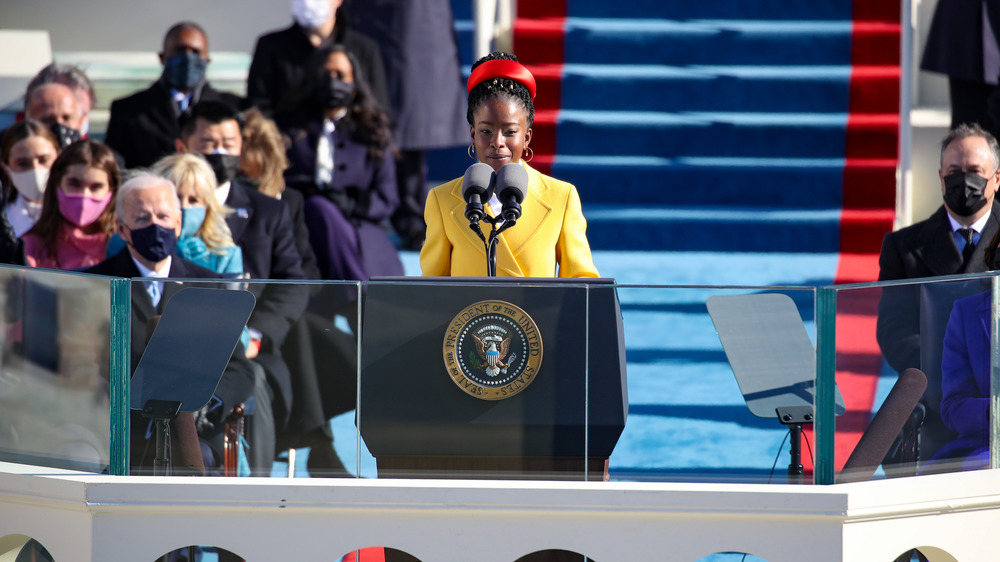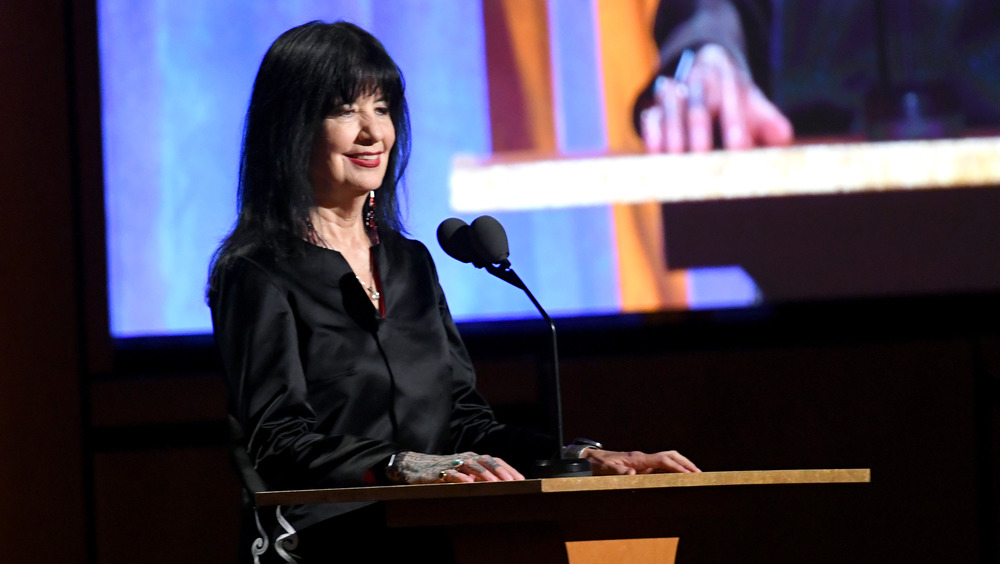Poet Laureates: The History Explained
In the United States, accomplished poets can be granted the position of city poet laureate, state poet laureate, United States poet laureate, and, for the first time ever, national youth poet laureate. This title was recently bestowed on the 22-year-old poet Amanda Gorman, who made history on January 20, 2021 as the youngest poet in American history to speak at a U.S. Presidential inauguration, per the Hill.
While the position of poet laureate is still relatively new in the United States, the tradition dates back to 17th century England. The royal office was established in 1668 and the poet John Dryden was appointed the laureateship. British poet laureates become members of the British royal household, with a title and salary, but are not required to perform any "specific poetic duties," according to Britannica. Although it was customary for laureates to write and perform odes for the sovereign until around 1820, the position is now considered an honor for poetic achievements already performed.
The concept of poet laureates is not a British invention, however. The tradition of honoring poets dates all the way back to ancient Greece, where renowned poets were crowned with wreathes of laurel for their poetic achievements. The practice was revived again during the Renaissance, per JSTOR, and it became a somewhat common custom for a state leader or monarch to nationally recognize a poet laureate. Traditionally, the laureates were expected to compose lyrics for nationally significant events and special occasions.
The United States established the position of national poet laureate in 1937
The United States didn't adopt the tradition until 1937, when the Library of Congress appointed Joseph Auslander to the position of Consultant in Poetry to the Library of Congress, per Poets.org. The position was later renamed to Poet Laureate Consultants in Poetry, and over 50 poets have since held the position.
Unlike in Britain, the U.S. national poet laureate does have official responsibilities, although former U.S. poet laureate Howard Nemerov once joked that "the Consultant in Poetry is a very busy man, chiefly because he spends so much time talking with people who want to know what the Consultant in Poetry does," says the Library of Congress. Each laureate must give at least one reading or presentation at the inauguration and at the close of their term. They are also tasked with selecting two annual Witter Bynner Fellows, and introducing them before the Library of Congress.They also receive a $35,000 annual stipend, which was originally intended to provide a full-time income for the poet, although it is now considered merely a bonus to supplement the poet's main source of income.
The current U.S. national poet laureate, Joy Harjo (pictured above), has held the position since 2019, and is the first Native American poet in U.S. history to receive the honor.

